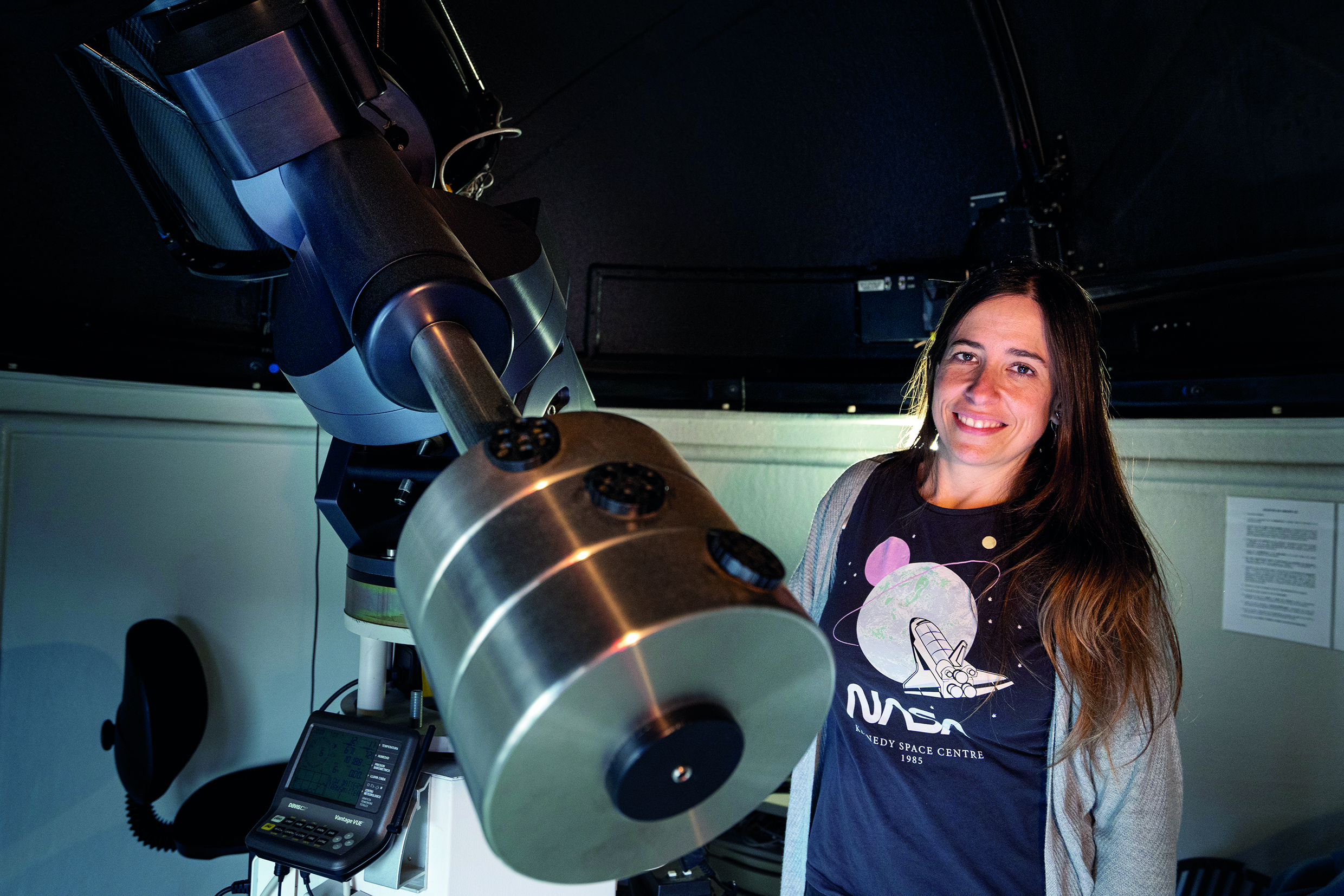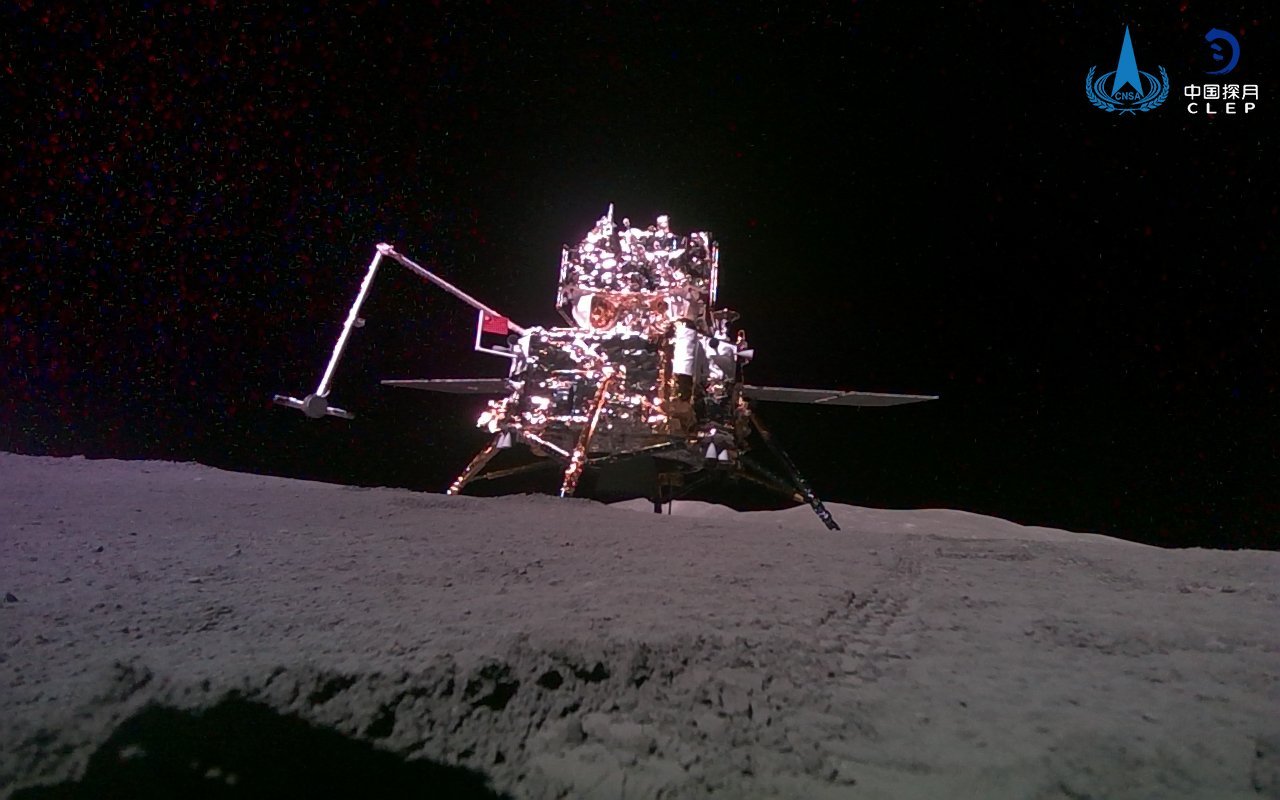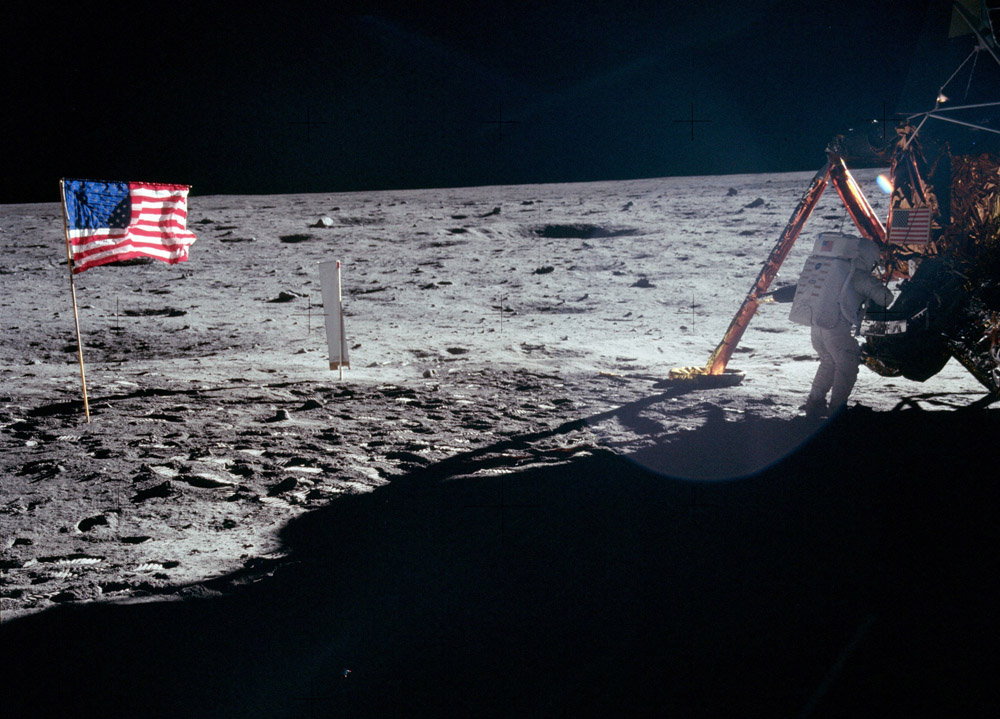"If we put money, we will be on Mars in twenty years' time."
- On the attached page is Naiara Barrado (Getxo, 1981), astronomer and member of the Research Group of Planetary Sciences next to the telescope of the School of Engineering of the UPV/EHU. In the day-to-day work, however, you look at the computer screen, working with Jupiter's data sent by the Hubble Telescope from space. It's also spreading planetary issues, and Perseverance's mission to Mars has been the excuse to talk to him.

In the past, new missions have been undertaken to send devices to Mars. Has this been more prominent in the media or is it my impression? They ask
it many times, and I think it's a feeling. The moment always seems bigger. More than one has asked me: “Why is it more important this time?” And I would say that when Opportunity and Spirit came in, it was also crystal. Yes, the current one has new things, it's a better technology, the largest so far, of course. For example, it carries a device called MOXIE that tries to transform carbon dioxide from Mars into oxygen. If it works, we'll have a chance to create oxygen on Mars and not have to take it here, if man comes there.
The answer to this question is already written in the interview brochure, does it really deserve so much expense?
I don’t think it’s “so much.” It is always said that “if we used that money for other things…”. The total Mars Express mission cost EUR 200 million. Curiosity, a similar to the current one, EUR 2 billion. And like the missions of Perseverance. Complete mission: to make the project, to build the devices, to send them… Everything. The ESA budget amounts to EUR 7 billion per year. And NASA's, even more. But ESA is from all over Europe, and the Spanish army, only from Spain, has an annual budget of EUR 10 billion. “But the army is designed to protect us,” some argue. What to protect from? From the wars caused by ourselves… More examples: the rescue of banks cost us 60,000 million. And to another extent, let's look at football. Athletic's annual budget is 120 million. Well, it's not that much. But Barcelona, this year, has reached 1 billion. Similar to Real Madrid. With the annual budget of both, you can arrange a mission to send devices to Mars.

Assuming that one of the objectives of these current missions is to pave the way for ourselves in the future, the next question is, why do we have to go to Mars?
I am not clear either. But we're like this, we're explorers in and of ourselves.
However, it doesn’t seem to be intended to get there, to say “how handsome!” and return home with some photos. We colonize, we create the conditions to be able to live there… that we will be terrorizing the earth and that we cannot live here.
Yes, that is totally absurd. Why don't we take care of the local to make the environment similar to the Earth? It's easier to produce oxygen there. But the truth is, I don't think that's the main reason I want to go there. We went to the Moon and we haven't come back, so ...
Aside from the ethical, aren't we very optimistic about the possibilities of reaching Mars? Can we really go? Twenty years from now, they say.
I think it is too optimistic to set a 20-year deadline, but with money we would achieve it. When Armstrong and so on. They moved to the Moon, NASA's budget was much larger than the current one. If the President of the United States decides to raise the budget, in twenty years' time we will be on Mars. Sure.
What do you think of private plans for sending people to Mars?
They frighten me because they involve excessive exploitation: we are not harming the Earth enough, and do we have to go destroy another? Some think about developing the technology needed to go to the asteroids between Mars and Jupiter and exploit its minerals, including many platinos. But who are asteroids from? It is a complex issue. Let these trips be a little exclusive, controlled and for what they deserve. But who will decide on this? The one in the White House? A trump? If you're a public, you don't guarantee that things are going right, unless you're leaving them free.
On a day-to-day basis, to Mars no, you look at Jupiter.
Just to the outer clouds.
The same question again, why?The typical answer to the
question, why do we study the atmospheres of other planets? is: “They are our natural laboratories.” For example, storms of sand and dust occur on Mars. Also on Earth, but those on Mars are much more spectacular, and if we learn things about those on Earth, maybe, compared to those on Earth, we'll learn the mechanisms of those on Earth. There's a huge greenhouse effect on Venus. Here we also have smaller ones. Studying there, we can also understand things here. Etc. As for Jupiter, we see its great storms. What we do is a basic science, and all of us in it are asked “for what.”
if there is tomorrow the opportunity to get into a boat and travel to the orbit of Jupiter, I would do nothing about that trip. Three or four years to go, many others to come back (if the situation of the planets is the right one)... Nothing to think about! But on the other hand, I usually say that Mars is very close because everything else is so far away... Maybe we think planets are much closer than they really are, by fiction or by fiction. Sometimes I've been asked, "Why don't we go to a planet of another star system?" And the truth is, the mere fact of reaching Pluto would be very difficult. Beyond...”.
Chão de Lamas-eko zilarrezko objektu sorta 1913an topatu zuten Coimbran (Portugal). Objektu horien artean zeltiar jatorriko zilarrezko bi ilargi zeuden. Bi ilargiak apaingarri hutsak zirela uste izan dute orain arte. Baina, berriki, adituek ilargietan egin zituzten motibo... [+]
James Webb teleskopioaren lehen irudiak eta datuak aurkeztu dituzte: unibertsoari inoiz ateratako argazkirik sakonenak eta exoplaneta baten espektroskopia-datu zehatzenak. “Kosmosaren ikuspegi berri eta iraultzaile bat”, Bill Nelson NASAko administratzailearen... [+]























